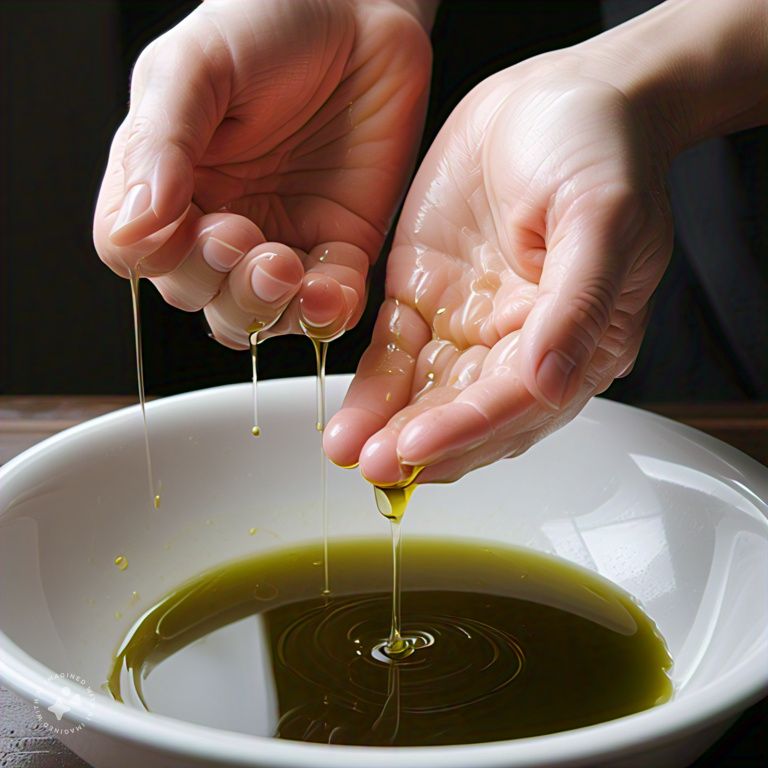Benefits of Abhyanga (Traditional Ayurvedic Oil Massage)
Abhyanga is an ancient Ayurvedic practice of oil massage that has been used for centuries to promote health, balance, and wellness. It involves the application of warm herbal oils to the body and is typically done as part of a regular routine to nourish the skin, enhance circulation, and support mental and emotional well-being. Here are some of the key benefits of abhyanga:
1. Improves Circulation and Blood Flow

One of the most notable benefits of abhyanga is its ability to enhance blood circulation. The warm oil, when massaged into the skin, helps increase the flow of blood and oxygen to the tissues. This improved circulation not only nourishes the cells but also promotes detoxification by helping to eliminate metabolic waste and toxins from the body. Enhanced circulation can also contribute to better muscle function and tissue repair, as well as support the health of the heart and cardiovascular system.
2. Promotes Lymphatic Drainage and Detoxification
Abhyanga also plays a vital role in stimulating the lymphatic system, which is responsible for removing toxins and waste from the body. The rhythmic massage encourages lymph flow, which helps to clear out toxins, reduce swelling, and improve immune function. Regular abhyanga helps to cleanse the body, reduce the burden of toxins, and maintain a balance of fluids within the tissues, contributing to overall health and vitality.
3. Nourishes and Softens the Skin
The oils used in abhyanga are often infused with herbs that have specific healing properties. These oils are rich in essential fatty acids and antioxidants, which help to nourish and hydrate the skin. The massage itself also promotes the removal of dead skin cells, leaving the skin feeling soft, supple, and glowing. Regular abhyanga helps to improve the skin’s elasticity, reduce dryness, and enhance its overall texture and appearance. It can be especially beneficial for individuals with dry, sensitive, or aging skin.
4. Reduces Stress and Promotes Relaxation
Abhyanga is renowned for its ability to reduce stress and promote a sense of deep relaxation. The gentle pressure applied during the massage activates the parasympathetic nervous system, which is responsible for the body’s “rest and digest” response. This helps to lower cortisol levels (the stress hormone) and promotes a calm, peaceful state of mind. The soothing effect of the massage not only eases physical tension but also helps reduce anxiety, improve sleep quality, and enhance mental clarity.
5. Enhances Joint Health and Flexibility
The practice of abhyanga can be particularly beneficial for joint health and flexibility. The warm oil helps to lubricate the joints, reducing stiffness and pain, especially in areas like the knees, elbows, and shoulders. The massaging action increases the flow of synovial fluid within the joints, promoting greater mobility and reducing the risk of conditions like arthritis. For those with an active lifestyle or those who experience discomfort due to aging or injury, regular abhyanga can support the maintenance of joint function and prevent wear and tear.
6. Balances the Doshas (Vata, Pitta, and Kapha)
In Ayurveda, health is believed to be governed by the balance of three energies known as doshas: Vata (air and space), Pitta (fire and water), and Kapha (earth and water). Abhyanga is designed to bring these doshas into balance by addressing individual needs. For example, a warming oil might be used for individuals with excess Vata (dryness, anxiety, or restlessness), while cooling oils are ideal for balancing excess Pitta (irritability or inflammation). By harmonizing the doshas, abhyanga promotes overall well-being and prevents imbalances that could lead to illness.
7. Improves Sleep Quality
Another significant benefit of abhyanga is its positive impact on sleep. The calming effects of the oil massage, combined with the physical relaxation from the massage, help to regulate sleep patterns. Many people who suffer from insomnia or poor sleep quality find that regular abhyanga helps them fall asleep faster, sleep more soundly, and wake up feeling refreshed. The relaxation induced by the practice can help combat restlessness and ease the mind before bedtime.
8. Enhances Mental Clarity and Focus
Abhyanga is not only beneficial for the body but also for the mind. The practice of regular oil massage helps to calm the nervous system and reduce mental fatigue. As stress levels decrease, mental clarity improves, leading to better concentration and focus. This is particularly helpful for individuals who experience brain fog, mental exhaustion, or difficulty focusing due to the demands of modern life.
9. Supports Immune System Health
Abhyanga has also been shown to boost immune function. The practice of regular oil massage improves the functioning of the lymphatic system, which plays a key role in fighting infections and keeping the immune system strong. By supporting the body’s natural detoxification process, abhyanga can help the body resist illness and recover faster from infections.
Conclusion
Incorporating abhyanga into your routine can have profound effects on your overall health and well-being. Whether it is to improve circulation, nourish the skin, reduce stress, or support joint health, the benefits of abhyanga are vast. This ancient practice serves as a holistic approach to maintaining physical, mental, and emotional balance, promoting a sense of vitality and rejuvenation. Regular abhyanga can be a wonderful way to enhance your self-care routine and bring a deeper sense of harmony and wellness into your life.
Leave a Reply